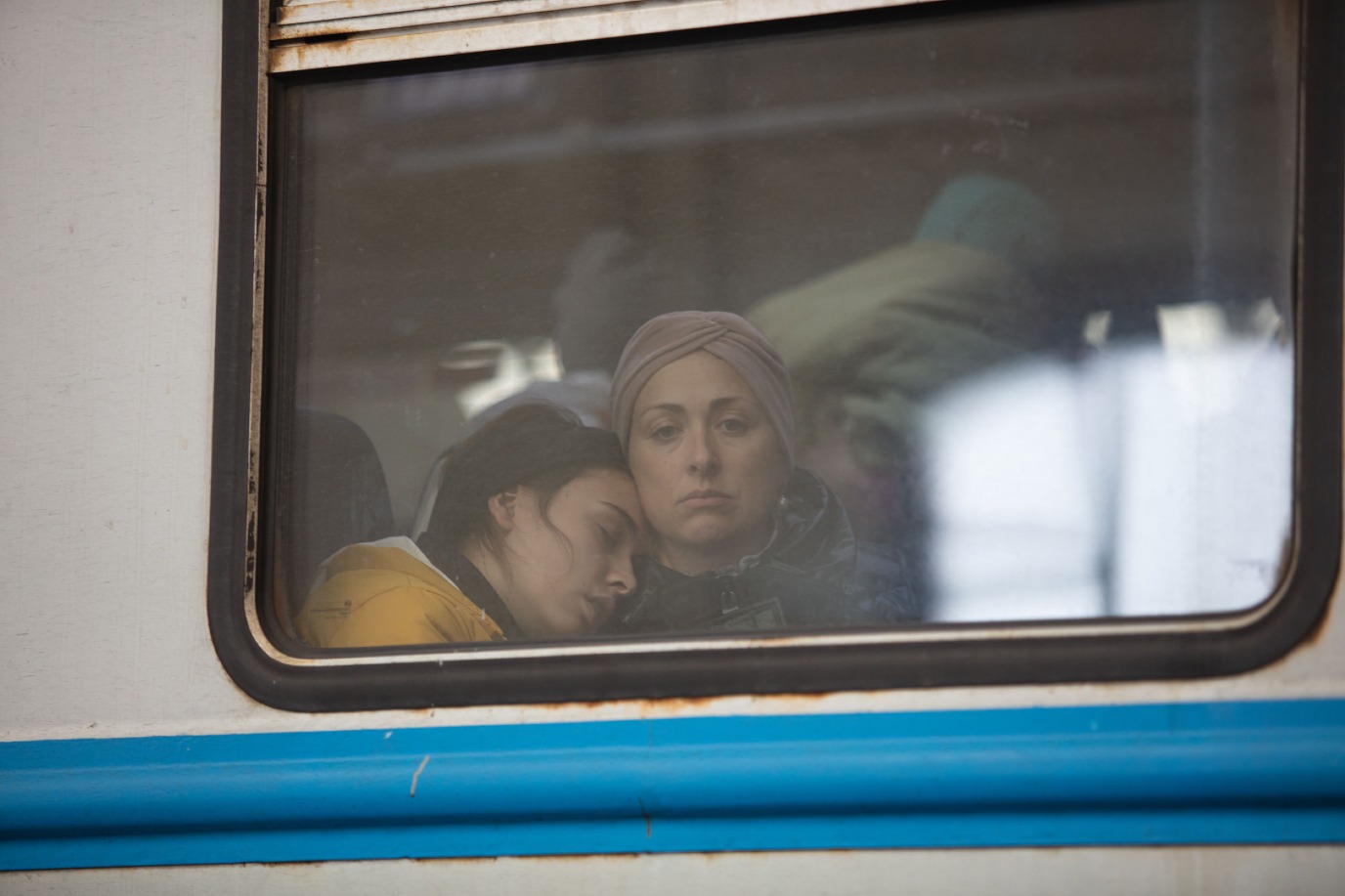Horrifying images also present in people who have not experienced war
‘Intrusions’ are spontaneously, involuntarily occurring intruding images or thoughts of a traumatic event. Traumatic experiences are often the trigger, for example in the context of violence, disasters or war. In her PhD thesis, Patricia Dashorst shows that people can also have intrusions related to events they did not experience themselves. She will defend her thesis on 9 November 2023.
PTSD
In most people, intrusions of a traumatic event are only present for a short period of time. In others, they may persist longer or emerge later in life, in which case they could be qualified as symptoms of post-traumatic stress disorder (PTSD). Clinical observations reveal that intrusions can also concern situations where one was not present in person. Psychiatrist and systemic therapist Dashorst studied intrusions in about a hundred people who were born after the Second World War. These were patients who were being treated for symptoms associated with growing up as a child in a family with parents who had survived the atrocities of World War II. Among the group studied, intrusions in relation to direct events, i.e. events one has personally experienced, were found to be as common as intrusions based on indirect events, i.e. events that one has not personally experienced. Intrusions were also found to have similar characteristics in both cases. A difference was found in fantasy proneness as a personality trait, which was shown to have a unique and strong correlation with indirect intrusions.
Visual images
The patients researched by Dashorst had parents who had survived the World War II. The indirect intrusions with which the (adult) children struggled were related to gruesome scenes, such as the atrocities in Nazi concentration camps, gas chambers, Japanese internment camps and deportations. Visual images of dying people, corpses, violence, humiliation, disease, starvation and being separated from family members were described. As an example from her own clinical practice, Dashorst mentions the son of a Holocaust survivor. He recounted intrusions with detailed depictions of children being murdered in gas chambers. The intrusions often encompassed emotions such as anxiety, fear and vulnerability and were usually told from the first-person perspective.

Relevance to present and future
The occurrence of intrusions indicates how great the long-term consequences of any negative event can be, even for people who are not primarily affected. Dashorst explains: ‘It also makes this research relevant for the present because of the far-reaching consequences of war. There is no reason to assume that children of survivors of other wars, for example those from Afghanistan, Syria, Rwanda, Ukraine, Israel, Gaza, or children of victims of domestic or work-related violence will be shielded from it.' And this also applies to children yet to be born.
ARQ Centrum ’45
Dashorst works at ARQ Centrum ’45, the national centre of expertise for diagnosis and treatment of complex psychotrauma. One of the things the centre focuses on is people who are traumatised by their work, such as veterans, police officers, ambulance personnel, firefighters, and journalists. In addition, ARQ Centrum ’45 also treats World War II survivors and their relatives, refugees, children, adolescents, families and victims of sexual violence. Often, these patients have a combination of psychological complaints or disorders, of which PTSD (post-traumatic stress disorder) is the most well-known.
Information
Kirsten Ruter – Communicatie ARQ Nationaal Psychotrauma Centrum – k.ruter arq.org en tel 0626726734. ARQ Nationaal Psychotrauma Centrum: www.arq.org
| Last modified: | 20 June 2024 07.56 a.m. |
More news
-
17 March 2025
Liekuut | The high price of conflicts
According to Carsten de Dreu, Professor of Foundations of Cooperation and Social Organization at the University of Groningen, a lot can be learned from conflicts.
-
10 March 2025
Science for Society | Memory Lab for higher marks
Learning facts at school is something hardly anyone likes. The day before a test, pupils cram as many words or names as possible into their heads, only to hopefully remember them the next morning and then forget them again after the test.
-
05 March 2025
Women in Science
The UG celebrates International Women’s Day with a special photo series: Women in Science.
